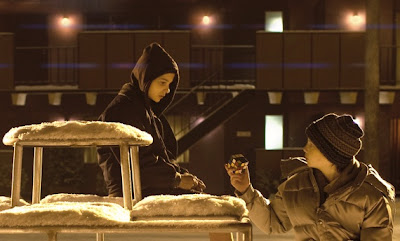Film Studies For Free shamelessly contemplates its own hypertextual, pedagogical, navel today, but it blushingly hopes, nonetheless, that the above embedded document will be of interest to some of its fellow educator readers. Just click on this
link to transport yourself to a
better-sized version for reading (and downloading).
The above document, authored by film researcher and filmmaker Charalambos Charalambous (
Χαράλαμπος Χαραλάμπους) of the University of Kent's School of Arts (Film Studies) in 2010, describes itself as
A study of Web 2.0 as an actualization of the concept of the Borgesian Library: a critical evaluation of WEB 2.0 technology in reference to the academic blog Film Studies For Free authored by Dr. Catherine Grant.
It was based in part on a research questionnaire filled in by
FSFF's author, and, in the opinion of the latter, is a fascinating and very well-informed reflection on the pedagogical possibilities of the kinds of anthologizing, virtual librarianship (or digital curation) that
this blog so adores, and which are completely made possible by
Web 2.0 technology.
The study will shortly be permanently stored at
FSFF's page dedicated to discussion of
Open Access, Digital Scholarship and the Digital Humanities.
In the meantime,
FSFF would like to thank Charalambos for his thoughtful words, which have made its little digital body swell with pride!







